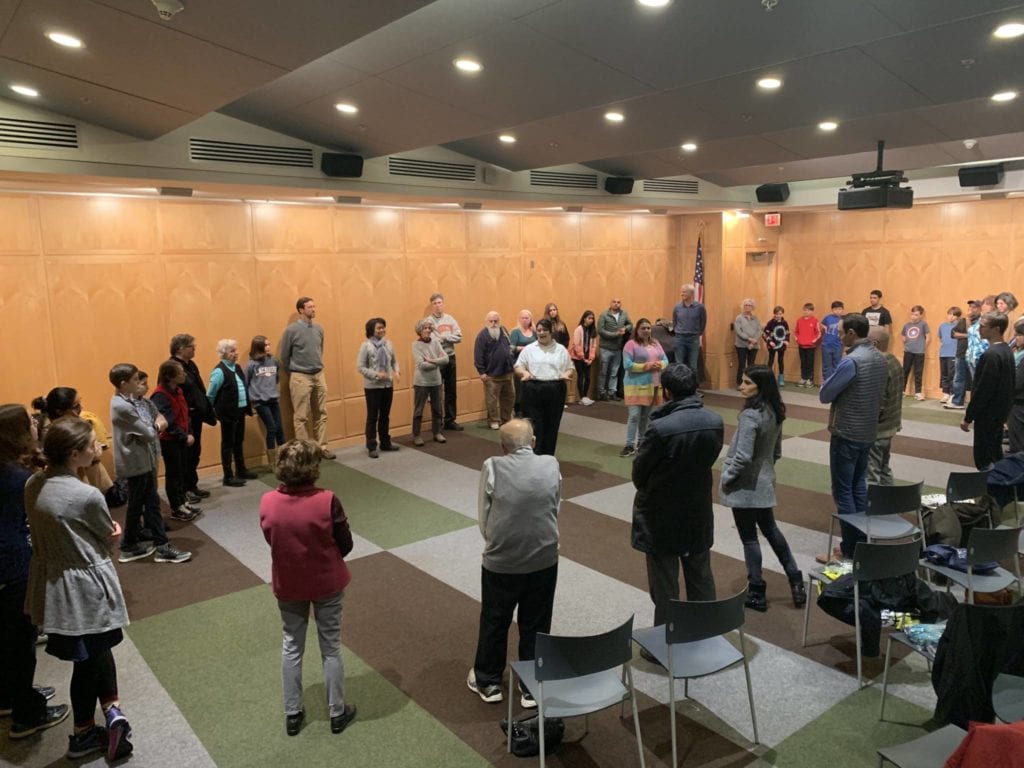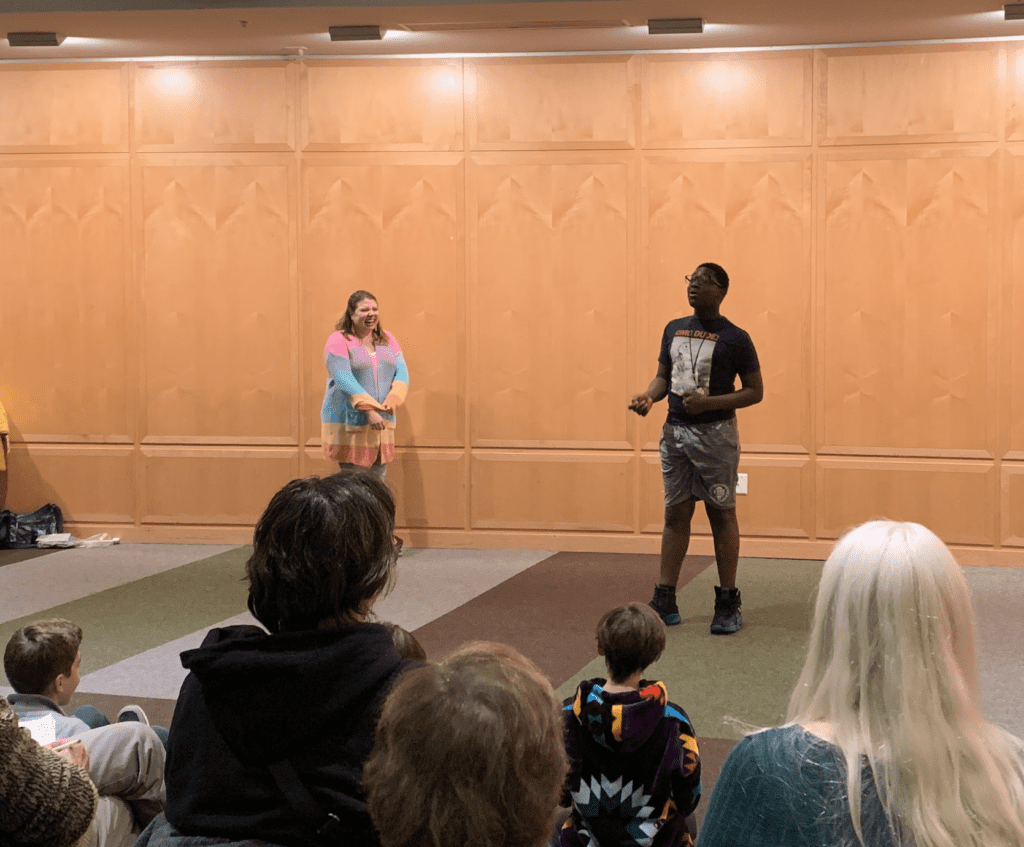By Tori Gorton ’21
“Improv and Being Human,” part of the Being Human Festival 2019 of the Humanities Council, brought to life the Community Room in Princeton Public Library on the evening of Monday, December 9. Organized by the Princeton Graduate Improv Club, the workshop was facilitated by two instructors from an improv school in Hell’s Kitchen, Manhattan. Participants numbered 50, including children, parents, students, and members of the Princeton community.
The workshop leaders highlighted improv as unique compared to other arts, like rehearsed plays, dance performances, music, literature, and paintings. In improv, one cannot go back and do anything again. Therefore, everything must be the best it can be on the first try.

The instructors presented different forms of improv, short-form and long-form—either of which would suit the exercises that the attendees were about to do. Short-form, the teachers detailed, involves a predetermined game where everyone in the scene knows the topic and what will elicit laughter. In contrast, long-form is more open, with organic collaboration, and typically lasting for a greater length of time—even up to 30 minutes based on a single suggestion from the audience. Long-form demands more careful listening and decision-making from actors, since they must build the story up together, with no chance for a second draft or retake. To this end, the workshop leaders offered a key piece of advice around the use of “yes, and…,” a rule of thumb in which one must jump on board with the choices made for the story by the other actors. For example, if someone said, “We are on Mars looking for new life!”, one ought to respond with something like, “Yes! And we just found traces of water near this rock,” rather than, “No, we’re at school in New York.” Playing with the information and listening to every word help create the scene.
Practicing these important skills was the object of the workshop’s first exercise, “Zip, zap, zop.” The audience split into halves and gathered around the room in circles. To launch the game, one person had to make eye contact with someone else in the circle and say “zip” while pointing at them. The “zipped” person then had to pick another member of the circle to look and point at while saying “zap.” The “zapped” person repeated with “zop,” then back through “zap” again—and so the cycle continued. The instructors stressed that the activity should hone skills in establishing eye contact and connecting with a partner on stage, then accurately and quickly responding to that partner’s remarks.

Having mastered the fundamentals, participants moved on to “obsession rants,” where one person talks about a subject that they feel passionate and knowledgeable about, a comfortable way of captivating an audience. To demonstrate, four volunteers stood in front of the audience. The instructor told them to talk when she was pointing at them, but warned that she would flit between people even mid-sentence, and that they would have pick up where they left off when she next indicated their turn. One volunteer, a child, spoke extensively about the zipper on his sweater. Another volunteer gushed about chickens laying eggs in the backyard. A third volunteer hooked the group on her love for movie theater popcorn. The last volunteer shared about snorkeling. After seeing the performances, the audience split again into two circles to practice obsession rants themselves. The room filled with noise. People spoke about all kinds of things, from forest bathing, chocolate, and the violin, to New Jersey gardens, shoes, and British accents. The instructors noted that the intense excitement and energy, along with the details in each speech, made every obsession rant powerful and entertaining.
The instructors finished by encouraging people to enact scenes that require empathy, so that the audience is not always waiting for a laugh. Honest, natural responses are funniest, the workshop leaders emphasized.
Valentin Skoutnev, President of the Princeton Graduate Improv Club, said that his group is looking to offer more workshops to the local community. He noted that beyond being fun, improv helps develop public speaking skills and thinking outside of one’s discipline.















